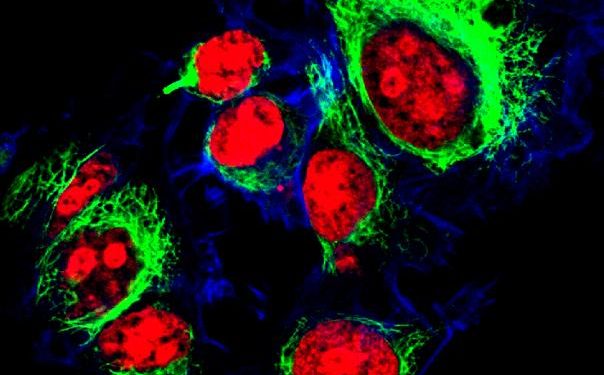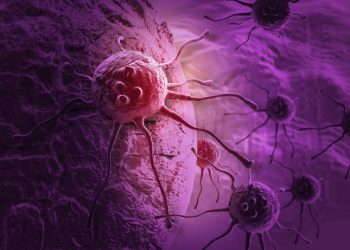Stomach cancer starts when something hurts stomach cells, causing changes in their DNA. These changes let the cells grow out of control.
Your doctor may do a test called an endoscopy to look at your stomach lining. They’ll put a long, flexible tube with a camera (endoscope) down your throat and into your stomach.
1. Weight loss
Cancer that starts in the lining of the stomach can cause pain and make it harder to digest food. Over time, this can lead to weight loss. It may also affect your appetite and how much you eat. If you have these symptoms, talk to your doctor right away.
In the early stages, cancer in the stomach might not cause any symptoms. At this stage, it’s usually found when doctors are looking for something else, like a stomach ulcer or infection. Symptoms might show up later, when the cancer has reached a more advanced stage. They can include feeling very tired, losing weight without trying and vomiting blood or having black stools.
Stomach cancer can also spread to lymph nodes and other parts of the body, which can cause symptoms specific to where the cancer is located. For example, cancer that spreads to the liver might cause yellowing of the skin and whites of the eyes. Cancer that spreads to the lungs might cause trouble breathing. It might also spread to the brain, causing changes in thinking and behavior.
If you have the first stage of stomach cancer (stage 0), doctors can cure it with surgery and chemotherapy or chemoradiation. This treatment can shrink tumors or kill cancer cells that have already spread. You might have a procedure called a gastrectomy, or removal of part or all of the stomach. Your doctors might also remove nearby lymph nodes, which are small organs that help fight germs.
Scientists don’t recommend routine screening for stomach cancer in people who don’t have any signs or symptoms of the disease. But you can ask your doctor if a genetic test could tell you if you have a gene change that makes you more likely to get the disease.
2. Changes in bowel habits
Having looser, more frequent bowel movements than usual can be a sign of stomach cancer. This might also include a feeling that you are not emptying your bowels completely after each time you go to the toilet.
If your bowel patterns change, tell your doctor about them. Changing bowel habits aren’t the only sign of stomach cancer, but they can be a problem if you have other symptoms too.
Stomach cancer develops when stomach cells get a mutation in their DNA. This changes the instructions that tell cells when to grow and die. Over time, cancer cells overtake healthy cells and start to grow out of control. They might form a tumor in the stomach or spread to other parts of the body (metastasize).
Most people with stomach cancer have no symptoms during the early stages. This makes it hard to spot, especially if the cancer is in its later stages. Later stage cancers can cause a lot of different symptoms, including indigestion, pain in the belly and bleeding in your anus.
Some types of cancer can spread to other areas of the body, such as the liver or lungs. When this happens, they can cause symptoms specific to those areas.
To check for stomach cancer, your doctor will ask about when the changes started and how often you have them. They may then carry out an endoscopy to look at your stomach lining. They might also take a sample of tissue to examine under a microscope. If the biopsy shows that you have stomach cancer, your doctor will talk to you about treatment options.
3. Stomach pain
Stomach cancer can cause pain that isn’t there or that comes and goes. It can also be a sign of another health problem, such as a stomach ulcer or gas. But if you have a pain that doesn’t go away, make an appointment to see your doctor. It’s important to find out what is causing your pain so it can be treated.
Most people who get stomach cancer don’t have any signs or symptoms in the early stages of their disease. That’s because the cancer usually develops slowly over a long time. It is rare for people to know they have it until it has spread to other parts of their body.
If your stomach cancer has spread to your lymph nodes or liver, you may have symptoms in those places, too. Your care team will use imaging tests to look for them. These include CT scans and positron emission tomography (PET). You might need surgery to see inside your belly if you have stomach cancer that has spread to other parts of your body.
Your doctor won’t routinely test you for stomach cancer before a symptom or sign appears. But if you are at higher risk, your doctor might want to do a test to check for it. The test usually involves a thin tube with a camera, called an upper endoscopy. Your doctor will put it down your throat and into your stomach. Then they will take a small sample of tissue to test for cancer. This is a biopsy. They might also take other tests to look for the spread of cancer. The tests might include blood and urine tests, X-rays, or imaging tests.
4. Blood in the stool
Blood in the stool is usually a sign of a problem in your colon or rectum. It can also be caused by sexually transmitted infections (STIs). Gonorrhea, chlamydia and syphilis all cause sores that can bleed in the anal or rectal lining. These STIs can also cause pain or itching in the area.
Black and tarry stools are most often signs of bleeding in the lower part of your digestive tract. The blood from these areas takes longer to pass through the digestive tract, and it mixes with the chemicals inside your body to make your stools darker.
If you have bright red, fresh blood in your stools, it may be from a problem like hemorrhoids or a swollen vein. It could also be from a condition called anal fissure, which is when there’s a break or a cut in the tissue that connects your anus to your rectum. This can happen when you strain to have a bowel movement or when you’re constipated.
Stomach cancer usually starts when there’s a mutation in the DNA of stomach cells. This makes the cells grow faster than normal and overtake healthy stomach cells. The cancer can then spread to other parts of your body (metastasize).
5. Abdominal swelling
While everyone gets stomach pain from time to time, a persistent or severe abdominal ache may be a sign of cancer. This is especially true if the ache occurs above the navel. Abdominal swelling or fluid buildup is another symptom of stomach cancer that can occur due to the growth of the tumor. This can place pressure on the stomach and surrounding tissues, leading to other symptoms such as acid reflux (GERD) or heartburn.
The stomach is a muscular, J-shaped organ in the upper abdomen that holds and breaks down food. It is part of the gastrointestinal tract or GI tract, which also includes the mouth, throat, esophagus, and colon. The earliest symptoms of stomach cancer are usually vague, and they can be mistaken for other conditions. This means that stomach cancer often goes undiagnosed until it reaches advanced stages, when it is easier to treat.
Having cancer can also make you feel tired and weak. This is because the cancer or treatment can affect how your body gets nutrients, such as from the blood. It can also cause your stomach to produce hormones that interfere with your appetite or make it hard to swallow.
Blood in your vomit or stool is also a sign of stomach cancer. This kind of bleeding is most common in advanced cancers. It can give your vomit or stools a coffee ground-like appearance. Bleeding from the stomach is a medical emergency and should always be evaluated by a doctor.
Your health care team will use imaging tests to look for signs of stomach cancer that have spread to other parts of the body. These tests might include CT or positron emission tomography (PET). You will probably have surgery to check for cancer that has spread to your liver or stomach lymph nodes.









